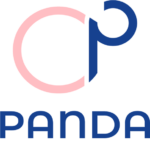About
Panda project
PANDA (Participation and Collaboration for Action) is a KA202 EU Project funded as part of the Erasmus+ Programme. The PANDA team is a community comprising academics and professionals from eight organisations (four universities and four professional services) in four European countries that seeks to educate and support social workers in their collaboration with young children to enhance children’s participation rights. The PANDA team seeks to help children to find their voice in challenging times in their lives. Our work takes place in a transnational context through strengthening professionals’ collaboration with young children known to social services, especially in child welfare and child protection contexts. |
Consortium
The project team consists of eight partners comprising universities, policymakers and field partners as follows:
- Artevelde University of Applied Sciences, Belgium (project coordinator)
- Norwegian University of Science and Technology
- Queen’s University of Belfast
- Complutense University of Madrid
- Fundación Secretariado Gitano (FSG)
- Voice of Young People in Care (VOYPIC)
- Trondheim Municipality, Children and Family Services, Link
- Flemish Agency Growing Up
Together, we are a strong team from different cultural backgrounds and with different expertise which we share together, and which places us in an excellent position to build knowledge, approaches and methods from different perspectives and understandings. We believe that we can achieve better results by working in a transnational context. We strive to help social workers so that they can collaborate with children introducing new insights, methods and ideas, to enable children to access their own voice and wider participation rights.
Our aim
The overarching aim of this project is to promote the participation rights of young children (aged 12 years and under) in decisionmaking processes. Progress in social work law, policy, and practice notwithstanding, the participation rights of young children (aged 12 and under) known to and/or in the care of social services remains an ongoing concern across Europe because professionals experience shared difficulties and barriers regarding its implementation.
Our objectives
- Help to create the collaborative conditions for participatory social work with young children
- Increase the competence of social workers/ professionals
- Support the implementation of a participatory approach to social work
- Provide trainers with post-qualification training to teach new tools and methods
Our project is supported by
The UN Sustainable Development Goals focusing on shared decisionmaking for all groups, with the aim of creating ‘responsive, inclusive, participatory and representative decision-making at all levels’ (SDG-target 16.7).
The UNCRC in which all rights are indivisible, and which insures that children’s participation rights are promoted through provisions contained in the four underlying principles (articles 2, 3, 6 and 12) and also through associated articles including articles 5, 13, 14, 15 and 17.
The global definition of Social Work that notes that human rights principles are central to the profession.
The project runs from September 2020 to until August 2023

Voice of children
Alicie and Rahela, equal rights
Fundación Secretariado Gitano

Associated partners
Europe
Youth Care Platform (associated with ENSA)
Belgium
- Kinderrechtencommissariaat. Flemish Office of the Children´s Right Commisioner
- Children’s Rights Knowledge Centre, Keki
- Cachet vzw
- CKG Het Open Poortje
- Gezin Centraal
Norway
Spain
- Asociación Alamedillas
- ASPASI
- Área de Gobierno de Familias, Igualdad y Bienestar Social. Madrid City Council
- Proyecto Sirio Nuevo Futuro